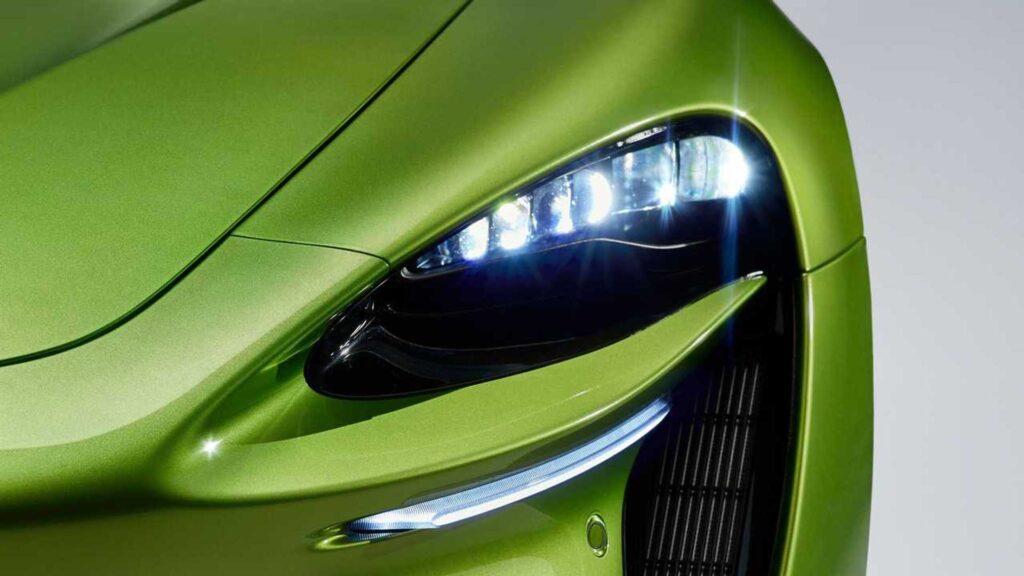- McLaren is gearing up to launch an electrified SUV and sedan in 2027.
- The company is under new management, which now wants it to join the SUV bandwagon.
- Both McLaren four-door vehicles will be hybrids, but still focused on lightness.
Even if performance purists scoff at the idea, it’s bad for business when sports car companies don’t branch out into the SUV game. Even hardcore manufacturers like Ferrari, Porsche, Lotus, Maserati, Aston Martin and Alpine all have high-riding vehicles in their lineups, because that’s where the money is right now.
Well, you can add another famed supercar manufacturer to that list, McLaren, which is reportedly going to unveil its first taller four-door vehicle in 2027.
It will retain a combustion engine, but it will be electrified, so it will likely be a plug-in hybrid, and it will be developed in-house by McLaren in keeping with the company’s ethos and focus on keeping cars as light as possible.
According to Automotive News, it will sit alongside “a 2+2 sedan-style model” also coming in 2027. Expect both vehicles to feature an extreme lightweight focus through extensive use of carbon fiber and other exotic materials, such as titanium, and they will also have advanced passive and active aero to help keep them stable while cornering and at high speeds.
This is a strategic move by McLaren, which doesn’t want to be left behind other manufacturers that are cashing in on the SUV trend. The Ferrari Purosangue and Aston Martin DBX are both excellent vehicles and are selling well, so there’s definitely room for a similar model from McLaren, whose plug-in hybrid powertrain will position it as a slightly different proposition.
McLaren currently offers one plug-in hybrid model, the Artura, which blends a twin-turbo V-6 engine with an axial flux electric motor for a combined 690 horsepower. Its PHEV powertrain is not focused on efficiency or driving long distances on electricity since it only has a 7.4-kilowatt-hour battery pack.
This approach of using the PHEV powertrain to maximize performance will likely be retained for the two upcoming four-door models, even though they will be considerably heavier than the Artura to accommodate four people and their bags. Mercedes-AMG opted for a smaller battery in its C63s E Performance, and after driving one back-to-back with a big-battery BMW M5, I was surprised to realize that I liked the former a lot more.
McLaren isn’t afraid to go even smaller with its PHEV batteries. The upcoming W1 flagship supercar model pairs a V-8 with an axial flux electric motor for 1,258 hp but only has a tiny 1.4 kWh battery that’s good for no more than 1.6 miles of pure electric driving.
However, the upcoming four-door models will likely feature bigger batteries, larger even than in the Artura, since their buyers may want more flexibility. Don’t expect them to get a massive 20+ kWh battery, though, because that seems highly unlikely with the lightweight focus.
This change of heart at McLaren comes after the marque was bought by CYVN Holdings, an Abu Dhabi-based investment firm, which also has a controlling stake in Gordon Murray Design and a smaller stake in Chinese EV manufacturer Nio. Even with the Nio connection, though, McLaren won’t build a pure electric vehicle, going no further than producing PHEVs.
This will likely be the trend going forward: the hottest performance cars from manufacturers with a sporty pedigree will retain combustion, either as part of an electrified powertrain or without any form of electric assistance. Even manufacturers that vowed to go all-electric and even make electric sports cars are now backtracking on their decision, and want to stick to combustion for longer.
The simple reason is that electric sports cars just don’t sell all that well. Take the Maserati GranTurismo Folgore, which is an exciting electric coupe with 751 hp and remarkable performance, but nobody seems to want one. That’s why Porsche has now announced that while it’s still going to build an electric 718, the top variants of the model will still have a combustion engine, which adds more emotion to the package.
With any luck, some company will figure out an electric future for sports cars. Until then, McLaren and others are keeping their options open.
Share this Story
